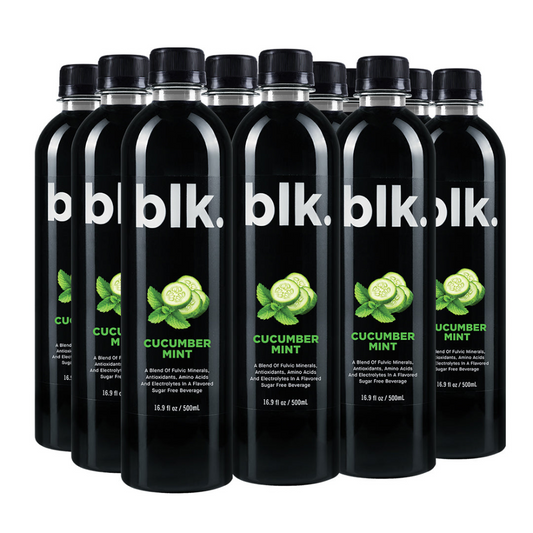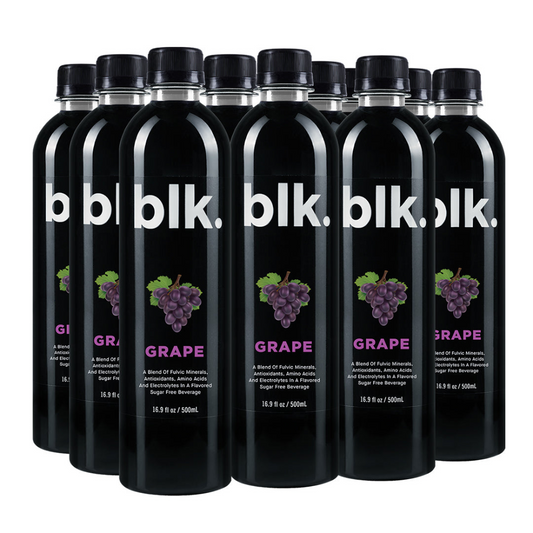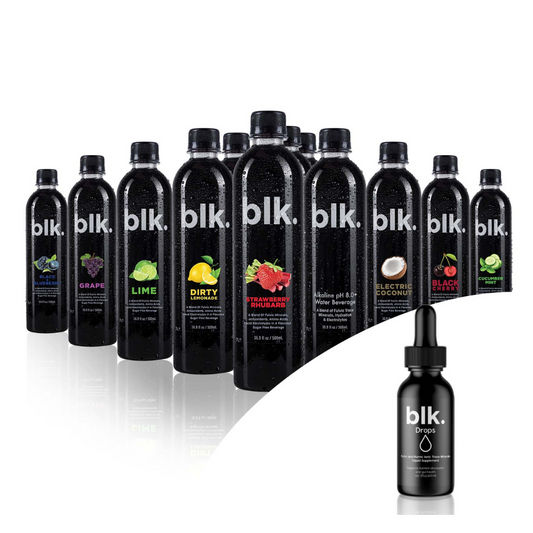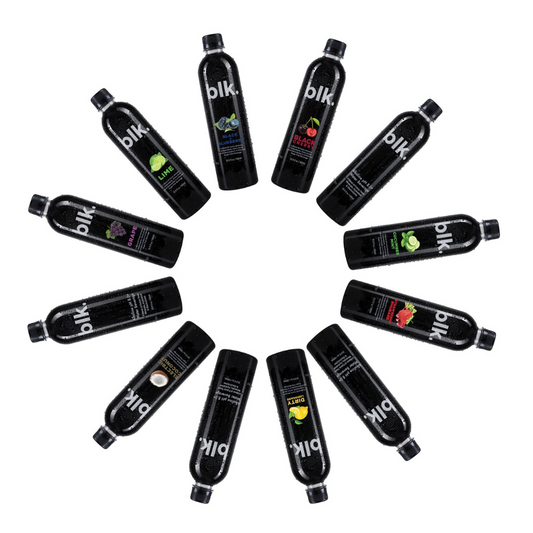
Protein Concentrates: Overview, Types, Uses, And Benefits
This Article Teaches You:
- What protein concentrates are and the different types of protein concentrates
- How the different types of protein concentrates are made
- How you can use protein concentrates
- What are the benefits of using protein concentrates
Protein bars, drinks, and powders have become popular dietary supplements in the fitness industry. It is imperative that you choose the highest-quality protein powder supplements to achieve optimal fitness goals. But there are other things you should also look out for. When you visit your favorite online supplement store, choose the type of protein powder that meets your nutritional needs. There are three popular protein powder forms: protein concentrates, protein isolates, and protein hydrolysates.
One thing that differentiates the three forms of protein powder is how they are made and processed. The extraction and processing procedures alter the nutritional profile of the protein powder, thus bringing about the three different forms of protein powder. Of course, all protein powder forms have pros and cons. However, this guide will focus on protein concentrates' types, uses, and benefits. After reading this blog, the reader will surely be able to make informed decisions while buying their protein supplements online.
Defining Protein Concentrates
Protein concentrates are dietary supplements with very high protein composition extracted from animal or vegetable products. These supplements have a protein level between 40 to 90% depending on the brand’s manufacturing practices and the degree of processing.
Moreover, the type of protein concentrate will also determine the protein intake. For instance, the protein level in whey protein concentrate could be higher than hemp protein concentrates.
Who Should Buy Protein Concentrate?
Protein concentrates often maintain the nutrients contained in the original source of protein since the processing is moderate. This means that you will likely find nutrients such as vitamins & minerals, antioxidants, and anti-inflammatory fats on top of the protein nutrients. If you are hell-bent on getting a protein powder supplement with pure protein (no extra nutrients), there may be better choices than protein concentrates.
Additionally, you need to understand that protein isolates are more expensive than protein concentrates due to the processing techniques used. Therefore, if you want to boost your protein intake but are on a budget, you know which supplements to go for.
Different Types of Protein Concentrates
Since there are various protein sources in protein powders, different types of protein concentrates exist. Whey protein, for instance, has its concentrate form called whey protein concentrate. Other types of protein concentrate include:
- Hemp Protein Concentrate
- Pea Protein Concentrate
- Fish Protein Concentrate
- Leaf Protein Concentrate
- Soy Protein Concentrate
The type of protein concentrate you choose will depend on the nutritional profile of the supplement and your dietary nutrition goals. You will settle for whey protein concentrate over hemp protein if you want a higher protein intake. But all these protein powder supplements have their pros & cons. You should pick what works for you depending on the nutritional value you are seeking.
Whey Protein Concentrate
There isn’t a single human being who wouldn’t want to live a healthy life. It is not any different for Americans hence they prefer products rich in whey protein concentrate to promote weight loss. Food and protein supplement manufacturers understand the importance of incorporating whey protein concentrate in their products. They know that you wouldn’t pass on an opportunity to take one step further to achieve your fitness and health goals. But what is this whey protein concentrate, and how is it made?
When milk is heated while adding acids such as vinegar or lemon, curd (solid milk) is formed, leaving liquid as residual. This curd is removed to remain with whey liquid. The liquid is then dried to form a powder called whey protein concentrate. The latter combines a lot of protein with fewer carbs and fats. One thing that makes this milk protein supplement unique is that it comprises bioactive compounds that have antioxidant and immune-boosting capabilities.
On top of that, its high absorption and digestibility rate gives it an edge over other protein concentrates.
Hemp Protein Concentrate
Compared to protein sources such as pea and soy protein concentrates, hemp protein concentrate has a slightly better and unique nutritional profile. It is a plant-based protein with essential nutrients, including fiber, vitamins & minerals. Hemp protein concentrate also contains a small amount of fats; if you are looking for a fat-free protein supplement, this might not be ideal, even though the fat composition is negligible.
However, hemp protein concentrate's digestibility and absorption rate are unmatched compared to its plant-based protein concentrate counterparts. What gives it an edge is that it is rich in edestin - a highly digestible globular protein. Well, the truth is no one loves the feeling of stomach discomfort or bloating. For those who prefer plant-based proteins, hemp protein concentrate is superior since it doesn’t cause stomach upset or bloating. Additionally, this protein powder gives consumers a unique nutritional profile, taste, and quality that can’t be matched by other plant-based protein concentrates.
Soy Protein Concentrate
Did you know that several products are obtained when mature soybeans are processed? Well, soy protein concentrate is one of those products. The process involves sorting out soybeans to select and clean, high-quality ones for processing. During processing, fractions of soluble carbohydrates and fats are removed. The procedure will leave you with white soy flake residue, which is then treated using aqueous alcohol to obtain soy protein concentrates.
The resulting soybean protein concentrate has a crude protein level of approximately 65 to 67%. Soy protein concentrate's digestibility level makes it a great option to add to beverages. You wouldn’t want to add a less soluble powder to your beverages.
Pea Protein Concentrate
Pea protein concentrate is obtained by either dry-milling or wet-milling pea seeds to separate fiber and starch. The yielding products contain about 48 to 90% protein. Scientific studies suggest that you can use enzymatic treatments to improve the functional properties of pea protein concentrates. Some of the primary functions of this concentrate that make it popular in the food industry include
- Emulsion ability ratio
- Emulsion stability
- Gelation
- Foam expansion
- Foam stability
- Nutritional benefits
- Oil-binding capacity
- Water-binding capacity
- Whippability
However, this supplement has one shortcoming; it lacks the essential amino acids required for muscle growth.
Fish Protein Concentrate
As the name suggests, fish protein concentrate is obtained directly from fish. The process involves grinding fish and then adding an isopropanol solvent to it. The solvent isolates solids from liquids to form a solid material which is then extracted by centrifuge to form fish protein concentrate.
Leaf Protein Concentrate
Leaf protein concentrate is obtained when you grind young leaves to a pulp and then press the paste to separate a liquid fraction by centrifuge or filter. Certain plants, such as clover and lucerne, provide higher protein concentrate yields than perennial grasses. Some studies claim that the protein level in leaf protein concentrate might be closer to that of soybean. However, the concentrate lacks lysine and methionine, which are essential amino acid nutrients.
Benefits of Using Protein Concentrates as a Supplement
There are general benefits to using protein concentrates. For instance, proteins are universally suitable for building and repairing muscles, weight loss, and nutrition. However, some pros are specific to particular protein concentrates, such as:
- Whey protein concentrate introduces a potent antioxidant (glutathione) in your body, thus boosting your immunity and easing stress.
- Whey protein concentrate is also highly bioavailable, thus making it an excellent protein source with a high nutrition absorption rate.
- Hemp protein concentrate contains fatty acids essential for promoting good cardiovascular health.
- Soy protein concentrate may aid blood sugar levels, cancer risk, and heart health.
- Pea protein concentrate is rich in iron and blends well with water & nearly all diets.
How to Use Protein Concentrates
If you are undertaking strength training exercises, protein concentrates are essential and great protein sources. Protein concentrates help you maximize your protein intake, thus supporting muscle mass and strength. Additionally, these concentrates offer a convenient source of protein if you don’t get enough from natural foods. One scoop of most protein concentrates is about 20 - 30 grams. Mixing it with milk, juice, or water to form a post-workout protein shake for muscle building is the best way to use it.
Meal Ideas For Incorporating Protein Concentrates Into Your Diet
Would you want to cook with protein concentrates instead of consuming the supplements directly? Well, there have been some top advancements in almost every industry over the years. And the baking industry has not been left behind. Have you ever scrolled through an online supplement store and encountered products like protein bars, cookies, or cakes? Even manufacturers are trying to find ways to sell protein concentrates conveniently for you.
But then you can purchase the protein concentrate supplement and use it for baking at home. It is advisable to do this at home because you can then control and regulate the ingredients as per your needs. For instance, most cookies or cakes with protein concentrates contain additives such as natural flavors and sugar. When you bake them alone at home, you can eliminate these extra additives and keep them natural.
If you choose to bake with protein concentrate at home, here is an example of how whey protein concentrate can improve your cooking: When you apply whey protein concentrate to your dough, the post-baked density decreases. Whatever you bake (cakes or cookies) will become fluffier. So, if the typical combination of adding batter and eggs to your dough doesn’t work for you, then you can try out protein concentrates. The latter has the added advantage of high protein intake, thus helping you achieve your dietary nutrition objectives.
How to Choose The Right Protein Concentrate
When choosing a protein concentrate, you should first figure out the outcomes you expect to achieve from supplements. You need to match the protein concentrate options with your needs. Here is a list of possible needs and what you should do:
- Weight loss - If you want to lose weight, you should pick a protein concentrate with no additives/sweeteners. Furthermore, it should be rich in BCAAs to promote muscle growth.
- Muscle building - The best option for those looking to build muscle is a protein concentrate with high biological value. Essentially, whey protein concentrate has the highest biological value due to its high absorption and digestibility rate.
- Avoiding digestive issues - Some protein concentrates can potentially cause gastrointestinal complications such as bloating and stomach upset. It could also be due to sensitivity, such as lactose intolerance. You should avoid protein concentrates that contain anything you are allergic to.
- Vegan or vegetarian - For vegans and vegetarians, it is imperative that you avoid milk-based protein concentrates such as whey protein concentrate. The best option would be plant-based protein concentrates such as pea, hemp, and soy protein concentrates.
- Budget - This is an essential factor when choosing a protein concentrate. Many people tend to believe that expensive means effective. But it is not always like that. So, try to stick within your budget.
Allergen Concerns in Protein Concentrates
There are no widespread allergens found in protein concentrates. This is because allergies are specific to individuals or groups of people. For instance, since it is milk-based, you should not consume a whey protein concentrate if you are lactose intolerant or a vegan or vegetarian. And this applies to all the protein concentrates if you are sensitive or allergic to any of their components. This way, you will avoid any potential complications.
Bottom Line
Of course, if the regular diet is protein-deficient, the best option is to use protein concentrates. Protein concentrates have their benefits and drawbacks, and there are different types with individual features. But at the end of the day, the type you settle for depends on your budget and nutritional needs. For instance, if you want to lose weight, you shouldn't go for a protein concentrate with lots of fats and sugar. Also, consult a doctor if you have any underlying medical condition.
Frequently Asked Questions
-
How do protein concentrates differ from protein isolates and hydrolysates in terms of protein content and processing methods?
-
What are the advantages of using protein concentrates for muscle growth and recovery?
-
Can protein concentrates contribute to weight loss and improved body composition?
-
Are there specific types of protein concentrates suitable for individuals with dietary restrictions or preferences?
-
What factors should be considered when selecting a high-quality protein concentrate supplement?
-
Are protein concentrates safe to consume?




